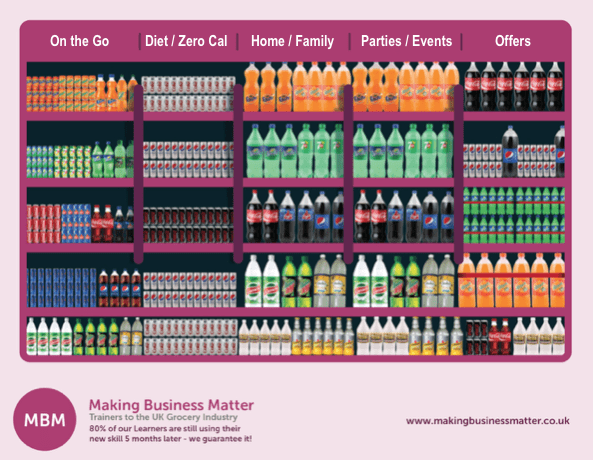What is the Role of a Category Captain?
The Category Captain is a leading manufacturer or supplier within a product category. The retailer appoints them for their knowledge and ability to manage the category and maximise its profits.
In the 1980s a concept transformed the retailer-supplier relationship, and this was the introduction of Category Management. For the first time, it put the needs of the consumer at the centre of retail decisions, and this process reduced direct competition and replaced it with a collaborative and mutually rewarding approach. In doing so, ‘product categories’ were created, and these are groups of similar products which are managed as a strategic business unit (SBU).
To lead this, retailers often appointed a ‘Category Captain’. Category Captains are nominated suppliers who recommend certain category changes. Typically, they are chosen regardless of their size or turnover. However, it is due to a particular skill and ability in identifying, coordinating and delivering insight and opportunities.

Who are They?
The Category Captain is integral to the success of the retailer-supplier relationship. Moreover, it is a key part of the Category Management process. The Captain or as it is sometimes called ‘Category Champion’, is typically a brand or private-label supplier.
The Category Captain is responsible for managing and maintaining communication between the retailer and the supplier. This is to optimise the retailers’ strategic development. Also, among his or her main responsibilities, the Captain must offer informed guidance as they help the retailer to make key decisions on the following:
- Pricing
- Store layout
- Promotions
- Marketing
- Inventory stocking and planning
- Product assortment
Every decision is made with the consumer experience and sales in mind. For example, the Category Captain must decide on product placement layout. Furthermore, they must decide which products should be on the shelf of their category, and how much space should be taken up by each.

Category Captains must continually develop their knowledge and conduct extensive research on consumer behaviour in-store because this allows them to meet consumer demand and give fast convenient product placement.
In addition, they look to minimise the risk of consumers abandoning their retailer for a competitor that provides a better experience. Furthermore, they help supplier-retailer relationships by developing key employees and other figures in the supply chain. This, in turn, leads to more profitable wins for the retailer.




